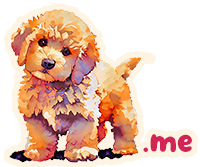Does your puppy continue to have accidents in their crate? Some puppies have accidents inside their crate. The first consideration is how often is this happening. A few accidents when your puppy’s been in the crate for too long is not a cause for concern. Also, most every puppy has an occasional upset stomach, which can result in crate soiling.
Unless the pup is making it a frequent habit to eliminate in the crate, there’s no cause for concern. Accidents happen. But if eliminating in the crate is becoming a habit, there are a few steps you can take to phase it out.
Are Accidents becoming a regular habit?
- Consider a health check. Before trying anything else, make sure your puppy doesn’t have a urinary tract infection or any other type of illness that could physically prevent him from holding his bladder for an adequate period of time. He might also be taking a medication or receiving a vaccine that is causing this side effect. Keep watch on what your pup eats off the ground when you’re outside with him because that could result in diarrhea or loose stools and cause him to soil his crate. Rich puppy treats or the wrong puppy food might also be the problem.
- Listen to your puppy. If the problem is happening at night, it may be that your pup and his bladder haven’t developed enough to hold it all night long. Many young puppies will need to be carried outside quietly once during the night until they are several months old.
- Be sure the pup has been properly introduced to the crate. The crate should be a quiet refuge he sees as a den. When your pup is in the crate during the day, give him his food or a safe chew toy or stuffed Kong. When your dog goes into the crate willingly, give him a treat.
- Keep track of time. A general rule of thumb for how long your puppy can “hold it” is 2-4 hours. Start with 3 hours intervals, and if needed move to 2 hour intervals. If your puppy is doing really awesome, move to 4 hours intervals. Puppies under 10 weeks cannot likely hold their bladder for longer than 4 hours yet. So set an alarm for the middle of the night (If you sleep 8 hours, set 1 alarm for 4 hours intervals. If you sleeps long set 2 alarms.)
- Set a schedule. Keep your puppy’s meals on a regular schedule, so you have an idea of when she will need to go out. Young puppies eat three times a day. What goes in on a regular schedule will come out on a regular schedule. For example, if you feed your puppy at 8 a.m., noon, and 5 p.m., her elimination schedule should become pretty predictable.
- Limit space in the crate. Your puppy’s crate should be just big enough for her to turn around and lie down. Many crates now come with a divider to keep the space small until your pup starts to grow – and then you can remove it. Dogs are naturally clean and don’t like to soil where they sleep, so you don’t want the crate so large that the puppy chooses one side as the bathroom area. Use a separate pen to contain your puppy for longer periods of time.
- Remove the bedding. If you follow the above steps and your puppy is still soiling his crate, consider removing the bedding. Some pups learn that they can soil the crate and cover the mess with their bedding. And some puppies prefer to soil on something soft and porous like their bed. Removing the bedding for a short time, while not as comfy, teaches your pup that it’s in his best interest not to soil in the crate since he will not want to lie in his mess.
Tips to better Manage Overnight Crating
- Exercise is important! Word of caution: sustained, strenuous exercise (long runs, jumping) is not good for puppies, but playing, mental stimulation, and running around in the yard are good. Exercise is a great way to encourage a puppy to use the bathroom, especially a bowl movement. Many owners report it difficult or time consuming for the puppy to go ‘number 2’ when taken outdoors. Encourage your puppy to follow you up and down a set of stairs in the home, and to walk all the way to the door (with you) on their own. This movement will encourage a potty! What has been helpful for many of our co-op members is adding in an auto-rolling ball to stimulate some play/movements which them encourages the puppy to take are of business. Auto-rolling balls are helpful when you are too tired to really engage the puppy in meaningful playtime, but still need them to relieve themselves. Regular intervals of exercise and play throughout the day will also help your puppy relieve themselves more thoroughly in the daytime, leading to less accidents at night!
- ⚽️Video of Auto-Rolling ball in-action⚽️
- Set 2 alarms for the middle of the night. One at 1-2AM, another at 4-5AM. Ideally set an alarm so you can get up and take your pup out for a quick, boring potty break. It’s better to wake up a little before you think the puppy will, so that you are not responding to whining and barking. Then back to bed so you’ll be ready for the next wonderful day with your puppy!
